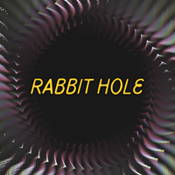
Overview
Synopsis
Becca and Howie Corbett have a picture perfect family life in the suburbs of New York until a random, tragic accident takes the life of their four-year old son. Soon after, Becca’s younger, irresponsible sister, Izzy, announces that she is pregnant: there will now be a new child in the family. As Becca and Howie grow apart, Becca’s mother, Nat, badgers Becca about her grieving process, and Jason, the young driver who killed their son, continually shows up to ask forgiveness, the group is on a bumpy road to healing with no road map in sight. Rabbit Hole delves into the complexity of a family navigating deep grief, and learning what it means to live a fruitful life when things fall apart.
Show Information
Context
Before Rabbit Hole, David Lindsay-Abaire was mostly known for his quirky comedies. He ventured into drama after his playwriting mentor, Marsha Norman, told him to write about something that scared him. A father himself, he decided to write a play about a couple who lost a child in a freak accident.
Rabbit Hole was commissioned by South Coast Repertory, a professional theater in Costa Mesa, California, and had its first showing at the Pacific Playwrights Festival in 2005. It debuted on
to read the context for Rabbit Hole and to unlock other amazing theatre resources!Plot
Act One
Scene One
On a Saturday afternoon, Becca folds kids' clothes while her sister, Izzy, tells her about the bar fight she got into. Becca is not amused. Izzy reveals that she’s pregnant with her boyfriend Auggie’s child. Becca offers Izzy the clothes she’s folding since she’s donating them anyway, but an uneasy Izzy says it would be weird for both of them to see her child in Danny’s clothes.
Scene Two
Later that night, Becca vents her frustrations about Izzy’s irresponsible
to read the plot for Rabbit Hole and to unlock other amazing theatre resources!Characters
| Name | Part Size | Gender | Vocal Part |
|---|---|---|---|
|
Lead |
Male |
Non-singer |
|
|
Lead |
Female |
Non-singer |
|
|
Supporting |
Female |
Non-singer |
|
|
Supporting |
Female |
Non-singer |
|
|
Supporting |
Male |
Non-singer |
Songs
A song with an asterisk (*) before the title indicates a dance number; a character listed in a song with an asterisk (*) by the character's name indicates that the character exclusively serves as a dancer in this song, which is sung by other characters.
Monologues
Scenes
Key Terms
An adaptation is a reworking of a story from one medium or cultural context into another, such as turning a novel into a play or updating a classic play’s setting. Adaptations often reinterpret themes, characters, and style for new audiences. They can range from faithful recreations to bold reimaginings.
A character in their teenage years, often portrayed as navigating identity, rebellion, and emotional growth.
A group of performers who function as a unit in a production rather than as individuals with leading roles.
A prestigious U.S. award for achievements in journalism, literature, and drama. Many modern plays that reflect social and political themes have received this honor.
Videos
Quizzes
Themes, Symbols & Motifs
Sorry! We do not currently have learning modules for this guide.
Quote Analysis
Sorry! We do not currently have learning modules for this guide.
